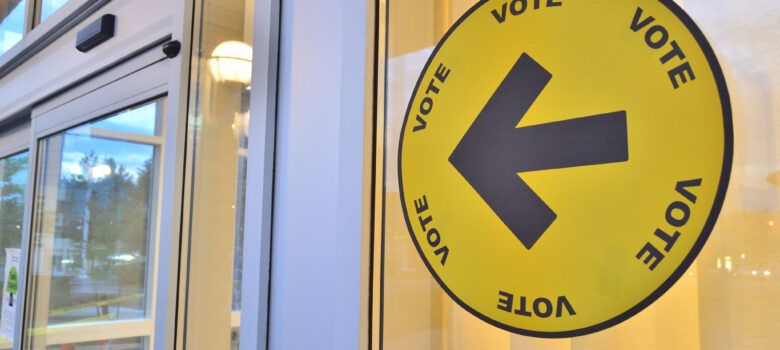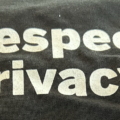It hasn’t received much attention, but the government and official opposition – ie. the Liberals and Conservatives – have been quietly working to pass legislation that undermine the privacy rights of Canadians, effectively exempting themselves from the privacy rules imposed on everyone else. As I highlighted in June, Bill C-4 was promoted as “affordability measures” bill but it also includes provisions that exempt political parties from the application of privacy protections. The provisions, which come toward the end of the bill, are deemed to be in force as May 31, 2000, meaning that they retroactively exempt the parties from any privacy violations that may date back decades. The House of Commons Standing Committee on Finance wrapped up its study of the bill last week and incredibly it refused to hear from any witnesses that would speak to the issue. In fact, despite concerns raised in briefs from the Privacy Commissioner of Canada and the Commissioner of Elections, the committee (consisting almost entirely of Liberal and Conservative MPs) limited its discussion of an entire section of the bill to a thirty second description of the provisions from a government official. No witnesses, no debate, no acknowledgement of concerns raised by experts. It was as if the provisions do not exist.
This is not the first time the government has tried to exempt political parties from standard privacy laws. Bill C-65, which failed in the last Parliament, contained similar provisions. However, the provisions were in a bill on the Elections Act, not buried among tax measures. Moreover, the previous approach were stronger, including measures to address data breaches and the requirement to notify affected individuals as well as certain restrictions such as the sale of personal information. Bill C-4 removes the data breach notification requirements, drops the sale restrictions, and renders the entire exemption retroactive to the year 2000. Having granted themselves full rights to collect, use and disclose personal information – and knowing that PIPEDA does not generally apply to these activities – Bill C-4 then also exempts the parties from any provincial privacy laws.
The government has even tried to erase the notion that its non-privacy rules have Charter effects. When the Department of Justice examined many of the same provisions in the Bill C-65 Charter statement, it concluded that they engaged Section 2(b) (freedom of expression) and Section 3 (democratic rights) of the Charter. On the other hand, the Bill C-4 Charter statement is notable for its brevity:
The Minister of Justice has examined Bill C-4, An Act respecting certain affordability measures for Canadians and another measure, for any inconsistency with the Charter pursuant to his obligation under section 4.1 of the Department of Justice Act. This review involved consideration of the objectives and features of the Bill. In reviewing the Bill, the Minister has not identified any potential effects on Charter rights and freedoms.
Denial or efforts to hide the legislation do not change the reality, however. Caroline Simard, Commissioner of Canada Elections, warns in her brief to the committee that the provisions raise legal uncertainty, which could harm the privacy of Canadians with a myriad of people who have access to personal information not subject to even the bare minimum featured in the bill:
Bill C-4 proposes that registered and eligible parties, as well as “any person or entity acting on the party’s behalf,” be required to comply with the party’s privacy policy. However, it does not explicitly state whether the provisions of the bill would also apply to nomination or leadership candidates or to campaign volunteers for candidates or riding associations. Most people with access to the voters list are candidate volunteers, not employees of parties or party associations. Furthermore, even if candidates and riding associations are registered, these entities do not act on behalf of a party and therefore their activities may not be covered by these new provisions. It would therefore be important to further clarify the scope of the provisions of Bill C-4 in order to avoid legal uncertainty.
The Privacy Commissioner of Canada is even more direct, urging the committee to ensure that privacy protection extends beyond political party privacy self-regulation:
In my view, political parties should be subject to privacy rules substantially similar to requirements set out for the public and private sectors in the Privacy Act and PIPEDA, while at the same time being adapted to the unique role played by political parties in the democratic process. Given the importance of privacy and the sensitive nature of the information being collected, Canadians need and deserve a privacy regime for political parties that goes further than self-regulation and that provides meaningful standards and independent oversight to protect and promote electors’ fundamental right to privacy. I believe that Bill C-4 should be strengthened to better protect electors’ personal information. My proposed amendments would help to ensure that voter participation can be maximized while at the same time protecting Canadians’ fundamental right to privacy.
Once the bill passes in the House of Commons, it will head to the Senate, who perhaps will give the privacy provisions the attention they deserve. In the meantime, the entire approach raises troubling questions about both the government and opposition’s commitment to privacy, refusal to abide by the same rules that they impose on others, and the utter failure to conduct a transparent, robust review of proposed legislation.












Not to mention the privacy provisions politicians are excluded from having to undergo in Bill C-5.
All political parties are on-board with making Canada a police state. There is now a true two-tier class, those with money and those without. All of us are just the working class to line the pockets of these people. This is no longer an extremist view.
Find out how this single mom was able to earn $6k/monthly for working at her home for a few hours a day and how you can do it yourself .. Read More
TAB in my name
privacy rights should be preserved of everyone.
Like alpha energy fuel provides diesel best services at any cost.
https://www.alphaenergyfuel.com/
The political parties in Canada exempt themselves from the laws that apply to others fairly often. Case in point, the Do Not Call list; the parties are NOT covered by the DNCL. Political contributions are tax deductable, but not like a regular charitable donation. They are a direct tax credit, rather than used to reduce your taxable income.
Pingback: Law and Media Round Up – 10 November 2025 – Inforrm's Blog
Pingback: Pierre Poilievre and Mark Carney Colluding Against Us | peckford42
Great Article. You have beautifully articulated it. Readers revisit only if they find something useful Stranger Things 2025 Outfits